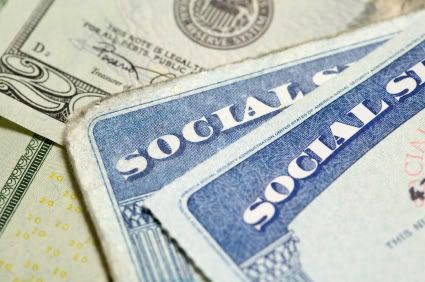Why on earth would young voters today support economic policies that are robbing us blind?
I saw Karin's post this morning about the political divide between Millennials (who are more liberal) and today's seniors (who are more conservative). I couldn't help but think of the debate over Social Security and Medicare: The way these programs work today is by simply taking money out of the hands of young workers and directing it to the benefits of current retirees. Some people, like John Stossel, have called this generational theft. People 65 and over have an average net worth of over $170,000, and people under 35 have an average net worth under $4000. Yet our nation's two biggest entitlement programs continually take from the youth to give to the old. Of course today's seniors paid into Social Security and Medicare during their working years, but with longer lives and expensive end-of-life care, many seniors receive far more in benefits than they ever paid into the program. The difference is coming directly from young taxpayers (either through our payments to Social Security, our other taxes, or through increased deficits and debts, which we will have to deal with later).
So again, why on earth would young voters support economic policies that are robbing us blind?
This opens a larger question: Do people vote in their self-interest?
I was just reading an article last month from Jonathan Haidt, author of The Righteous Mind, on this subject. He points out that liberals lament that so many blue-collar workers side with conservatives. While I disagree with the liberals' premise that blue-collar workers benefit (in the long run) from liberal economic policies, I think Haidt offers some interesting analysis:
Many commentators on the left have embraced some version of the duping hypothesis: the Republican party dupes people into voting against their economic interests by triggering outrage on cultural issues.
Here's a more painful but ultimately constructive diagnosis, from the point of view of moral psychology: politics at the national level is more like religion than it is like shopping. It's more about a moral vision that unifies a nation and calls it to greatness than it is about self-interest or specific policies. In most countries, the right tends to see that more clearly than the left. In America the Republicans did the hard work of drafting their moral vision in the 1970s, and Ronald Reagan was their eloquent spokesman. Patriotism, social order, strong families, personal responsibility (not government safety nets) and free enterprise. Those are values, not government programmes.
The Democrats, in contrast, have tried to win voters' hearts by promising to protect or expand programmes for elderly people, young people, students, poor people and the middle class. Vote for us and we'll use government to take care of everyone! But most Americans don't want to live in a nation based primarily on caring. That's what families are for.
I'm sure some conservatives would say that young people are being duped into voting against their economic interests by efforts to trigger their outrage on cultural issues. According to my "newsfeed" on Facebook, Milennials seem more interested in the War on Women, Chick-Fil-A, and gay marriage than they do Social Security, Medicare, or the looming national debt crisis.
But Haidt makes an interesting point: Politics is about a moral vision. It's obvious that we can't rely on voters to vote in their own economic self-interest. Otherwise, every person under 30 would be demanding entitlement reform, tax and regulatory reform, reduced spending, balanced budgets, and… oh yeah, repeal of ObamaCare.
To attract Millennial voters, conservatives of today must continue to articulate and demonstrate the values that inform our policy stances. Personal responsibility is necessary for personal freedom. Dignity is better than dependency. Strong families and communities can love needy individuals better than any state can. Free enterprise is our best hope for reducing poverty and allowing individuals to pursue happiness and earn success. If more Millennials heard and understood this message, they would change their political views.


